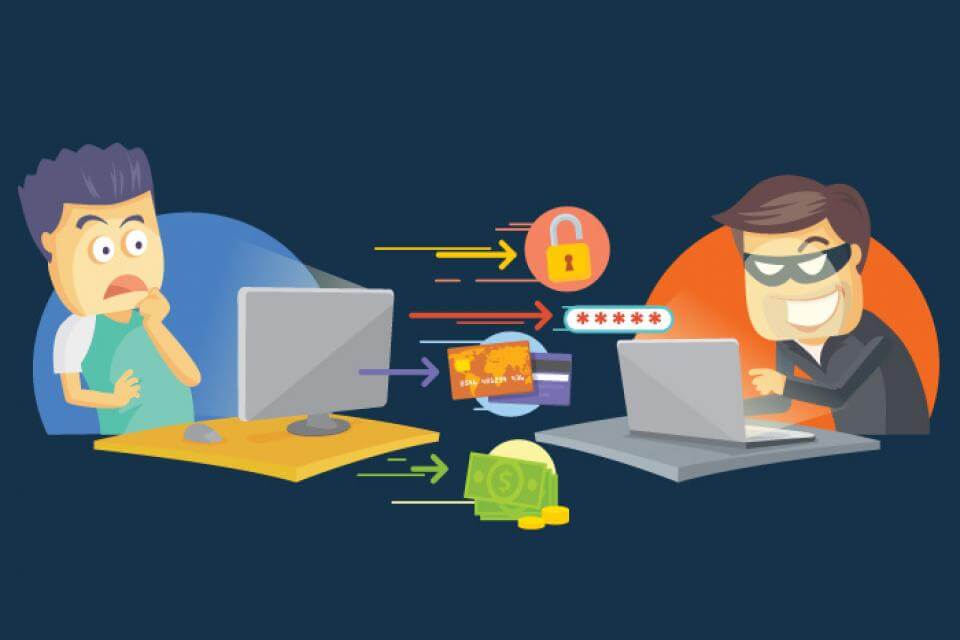
Identity theft happens when criminals steal your personal information like your Social Security number, driver’s license number, credit card number, telephone number and other private data in order to commit fraud or other crimes. This can lead to financial loss, damage to your credit score and legal problems.
According to the Federal Trade Commission (FTC) There were 1,135,291 reported cases of identity theft and 449,032 cases of credit card fraud in 2024. Both measures exceeded the number of cases reported in 2022 and 2023. Identity theft and credit card fraud have been the most common types of fraud since 2020.
The Federal Trade Commission’s ID Theft Data Clearinghouse says the most common types of identity theft are.
Using or opening a credit card account fraudulently
Opening telecommunications or utility accounts fraudulently
Passing bad checks or opening a new bank account
Getting loans in another person’s name
Working in another person’s name
If you have been the victim of identity theft you must act quickly to mitigate the negative consequences you will face.
Who you contact will depend on the type of identity theft you have experienced.
Gather copies of any documents that are related to the theft such as letters, emails, or messages from creditors, banks, or other institutions.
Keep a log of everyone you contact when reporting the theft. Record their name, date and time, phone number, reference numbers and any other relevant information that is exchanged.
Keep any correspondence you receive and if you send anything by mail, send it certified so that you have proof of the delivery.
Change your passwords
Log into any accounts that may have been compromised and change your passwords and security questions. Enable multifactor authentication (MFA) for each account.
Freeze your credit
If you have not already done so freeze your credit with the three major credit bureaus, Equifax, Experian and Transunion.
A credit freeze restricts access to your credit reports. When your credit reports are frozen creditors cannot access your reports, this prevents new lines of credit from being opened in your name. How to Freeze Your Credit
Place a Fraud Alert on Your Credit
A fraud alert does not block access to your credit reports like a credit freeze does, instead it notifies potential lenders to take additional steps to verify the applicant’s identity before issuing lines of credit, which may involve the creditor contacting the applicant by phone to confirm their identity. The notification tells creditors that you have been or are at risk of being a victim of fraud. Placing a fraud alert is free and it will not impact your credit score. When you request a fraud alert with one credit bureau, the other major credit bureaus will be notified, and an alert will be placed with those agencies as well. How to Place a Fraud Alert on Your Credit
Review Your Credit Reports
Request copies of your credit reports with the three major credit bureaus and check each report for accuracy. If errors are found file a dispute with the credit bureau. How to Request Free Copies of your Credit Report
Review Bank & Financial Account Statements & Setup Notifications
Log into your bank, credit union and other financial institutions and check your statements for any transactions you don’t recognize or any changes to your personal or account information. Contact the business if you find problems. Setup notifications with each business so that you are alerted when any account activity takes place.
Cancel Credit Cards & Bank Accounts
Contact your bank, credit union and credit card company and ask them to cancel your accounts and open new ones if the accounts have been compromised.
Contact Other Companies Involved in The Theft
Contact any company you do business with that may be involved, these may include lenders, credit card companies, retailers, insurance companies, doctors’ offices and medical facilities, Medicare\Medicaid and utility companies.
Contact Government Agencies
Report the theft to the Bureau of Motor Vehicles, the Social Security Administration, the IRS and the Department of State if you have a passport. The Social Security Department will review your earnings and ensure your records are correct. Setup a Social Security account so that you can log in and monitor your file. Register for Online Access with Social Security
Notify the Postal Inspector if you think an identity thief has stolen your mail or filed a change of address request in your name. United States Postal Inspector
Report identity theft to the Federal Trade Commission (FTC) You will receive a personalized recovery plan along with an identity theft affidavit.
File a police report with your local law enforcement agency.
Unfortunately, identity theft is an all to common problem. Take steps to prevent it, because recovering from identity theft can be a long, costly process. Preventing Identity Theft
